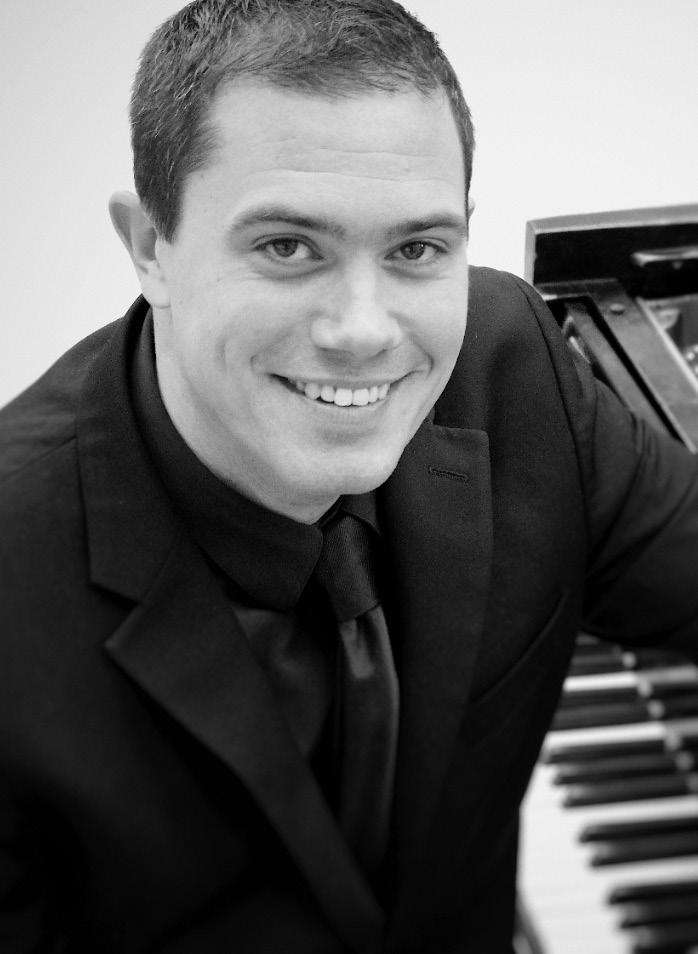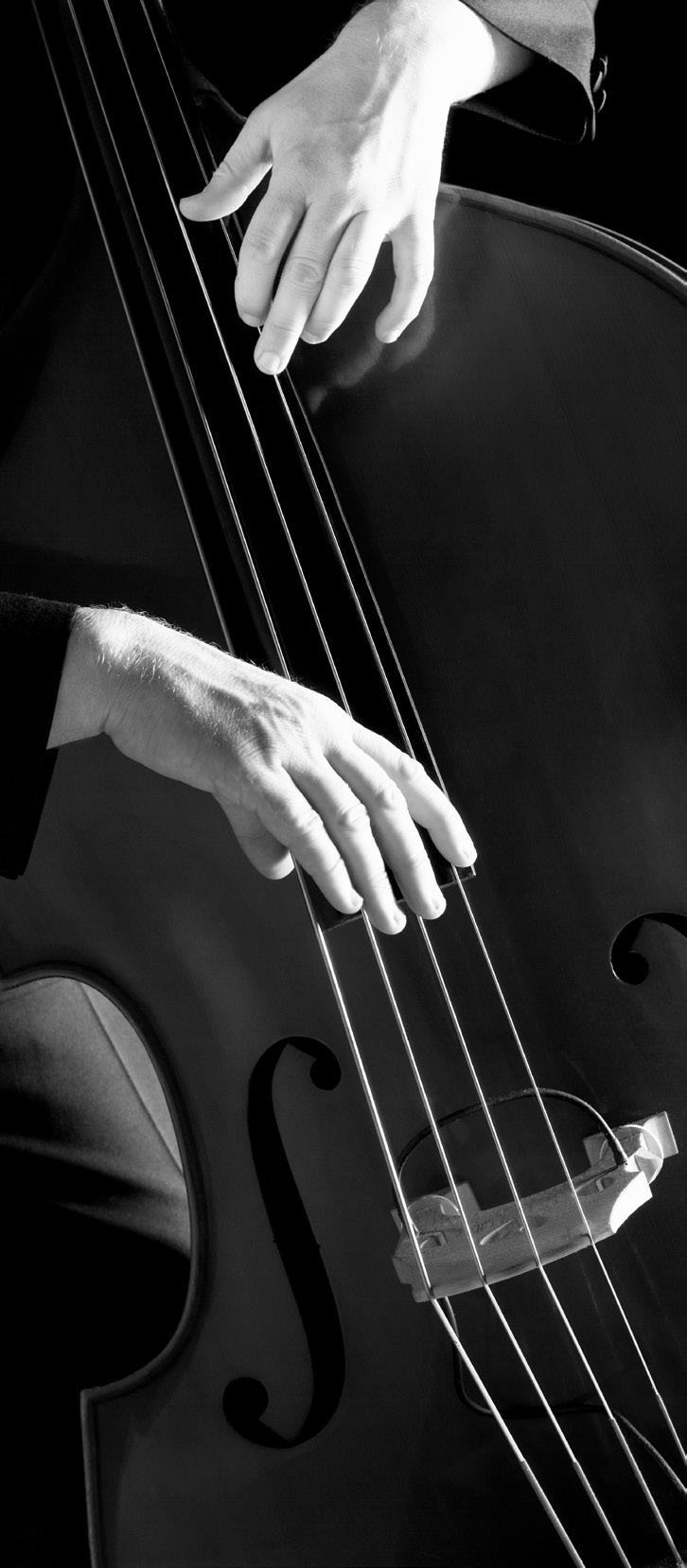
5 minute read
A HIKER’S GUIDE TO SCORE STUDY BY BRANDEN STEINMETZ
Imade a promise to myself several years ago that if I ever had to move and relocate, I would leave feeling as if I’d soaked up what the previous location had to offer. Living in Colorado for nearly four years, I’ve taken advantage of the stunningly gorgeous scenery the state has to offer. I took up hiking and began climbing to the tops of mountains, through wilderness areas, and around incredible wildlife. With each journey, I’ve started to make notes about the relationships between hiking and score study (though the concepts could be transferred to almost any process-oriented endeavor).
WHAT IS MY WHY?
The first question I ask myself when I set off on a hike is: “What is my why?” I could be sleeping in a warm bed but instead, I’m setting off on a trail before sunrise. Ultimately, my “why” almost always ends up being driven by curiosity. Perhaps there is a new view from a mountain that I will earn, or wildflowers that I haven’t encountered! The same is true when I begin my score study process. I am incredibly curious about what my students might be able to achieve, what the notes on a page could sound like if performed properly, and what kinds of humanity can be developed between me and my students during the process of rehearsing for a concert. That is what motivates me to begin the journey. The students depend on me to put them in a position to succeed. That is all the spark I need to take the first step into studying a score – which is usually the most difficult step.
“IF YOU DON’T KNOW WHERE TO START, START SOMEWHERE”
This quote has jumpstarted me many times in my life. Too often, we are waiting for something or someone to tell us to begin. As a hiker (and as an educator), I can’t wait for someone else to give me instruction. I must take the initiative to set out on the path. One of the common phrases I hear from students is: “I feel like I just don’t know what I don’t know.” To that I say: “What an opportunity!” The feeling of knowing you might not know everything is uncomfortable. It creates anxiety that we may not be “perfect” at something. Imagine if the great inventors decided not to pursue ideas simply because they didn’t think they knew everything yet! The reality is, you must take the recognition of not knowing and use that to discover things along the way. The first thing I do before setting out on a hike or before studying a score is to make sure I have proper equipment. For me, I need a ruler, a dark pencil, a red pen/marker, and a metronome. If I have those things within arm’s reach, I know I’m equipped to at least begin the process. I also think about things that I can control. For example, I may not be an expert in the field of music theory, but I do know enough to start analyzing what music is in front of me. I know I won’t get it all perfect and accurate, but I trust that I’ve at least worked enough to try.
FIRE. AIM. READY.
After I have my necessary tools and equipment and give myself a little pep talk that I’m capable of at least attempting this journey, I start. I embrace that fear and anxiety that I might fail and harness it to drive my curiosities. I find that the bigger the hike, the earlier I need to start. Likewise, the bigger the piece, the sooner
I need to begin the study process. At this point in the process, I’m not necessarily concerned with the end result. I simply allow myself to take in everything that I see and observe. This is usually the time to stay, relatively speaking, on the general path and not stray too far while I’m trying to uncover some of the foundation of the music. I try to identify form first because I find that it gives me the strongest base for knowing the score. I look for patterns – harmonic, melodic, rhythmic – to help me see how a piece is scaffolded. And like on a hike, I try to identify places where I or my ensemble may struggle. What ultimately ends up happening is I find myself starting to ask questions about the music. “Why is this phrase 5 measures instead of 4?” “How did the composer end up in this key after starting in that key?” Before I know it, I no longer even think about reaching the destination. The more questions I answer, the more questions I have.
Discovering Unknowns
At this point in my journey, I start to realize that I’m starting to find those things I didn’t know. If I would have started the process with the mindset of: “We have to play this in 6 weeks, so we need to align this rhythm and make sure that transition is perfect, so the judges hear…” I would have missed SO MUCH SCENERY! Staying open and allowing myself to go down the metaphorical rabbit hole of asking questions lets me take in beauty that I would have otherwise missed. Around this time, the destination starts to be visible. That can be both motivating and intimidating. I tell my students that “the end is closer than it feels, but further away than it looks.” This is true in music, hiking, life etc… The intimidating part of that feeling is that you feel like you haven’t answered (or asked for that matter) all the questions yet. When you start to feel like that, I encourage you to look behind you and see how far you’ve come. Think about to when you first opened the score and knew NOTHING! Now, look in front of you and just keep going. The process itself is kind of cyclical in that you must continuously be OK with the idea that you may not know everything, but you trust that you have quite a lot to offer to the music, your students, and yourself.
Enjoy It
That whole process can (and ideally should) be done before your first rehearsal with your students. I find that the more I’ve embraced that process of learning and asking questions, the more I’m able to enjoy the rehearsal process, and ultimately the performance. More importantly, my students have a more rewarding experience because I am more able to guide them, challenge them, and put them in a position where they feel successful and part of the process.

after I’ve finished. You may find that you can’t climb the tallest mountain or learn the most challenging piece of music right away. THAT’S OK! You can take this process and continue to build your skills and capacity to learn new music. If you’re someone who has never or rarely studied a score, start small. Maybe you choose one piece this year that you are going to make it a goal to know inside and out. Your students WILL benefit from you taking the challenge. It becomes more rewarding the more you do it, so take that first step!
Score study (and hiking!) is not always an easy process. It can be difficult and tiring, but I’ve never once regretted doing something difficult








